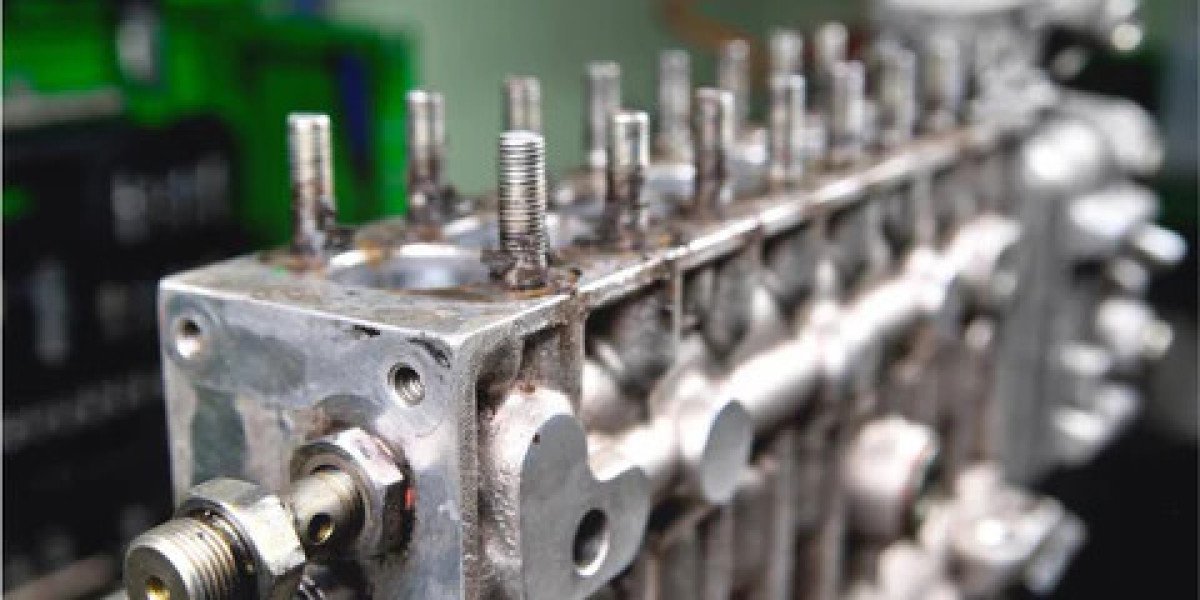A well-maintained fuel system is essential for optimal vehicle performance, fuel efficiency, and longevity. Regular fuel system inspections help prevent engine issues, costly repairs, and unexpected breakdowns. Over time, fuel contaminants, clogged injectors, and failing fuel pumps can lead to poor performance. To ensure reliability, periodic inspections are crucial. Experts at Goldfarb Associates emphasize the importance of maintaining a clean and efficient fuel injection system for long-term vehicle health.

Components of a Fuel System
To understand why inspections are necessary, it’s important to know the key components of the fuel system:
1. Fuel Tank
Stores fuel and must be free from rust, debris, and contaminants that can clog the system.
2. Fuel Pump
Responsible for maintaining the right fuel pressure for smooth engine performance. A failing pump can cause power loss and poor fuel economy.
3. Fuel Injectors
Regulate fuel flow into the engine. Clogged or dirty injectors lead to inefficient combustion, reducing performance.
4. Fuel Filters
Prevent dirt and debris from entering the engine. A clogged filter can reduce fuel flow and affect efficiency.
5. Fuel Lines
Transport fuel between system components. Any leaks or blockages can cause fuel loss and reduced engine performance.
Benefits of Regular Fuel System Inspections
Routine fuel system maintenance ensures smooth engine function and prevents costly repairs. Goldfarb Associates recommends periodic checks for the following benefits:
1. Improved Engine Performance
A clean and efficient fuel injection system delivers the right fuel-to-air ratio, enhancing power and responsiveness.
2. Enhanced Fuel Efficiency
Regular inspections help maintain optimal fuel consumption, saving money on fuel costs.
3. Prolonged Component Lifespan
Routine maintenance reduces wear on fuel system parts, increasing their longevity and preventing premature failure.
4. Reduced Risk of Costly Repairs
Detecting minor issues early prevents expensive breakdowns. Goldfarb Associates provides expert guidance on identifying potential fuel system problems.
5. Lower Emissions & Environmental Benefits
A properly functioning fuel system reduces harmful emissions, ensuring compliance with environmental regulations.
Signs Your Fuel System Needs Inspection
Ignoring warning signs can lead to major engine damage. Watch for these indicators:
- Difficulty starting the engine – A weak or failing fuel pump can cause ignition problems.
- Decreased fuel economy – Clogged fuel injectors or filters force the engine to work harder.
- Engine misfires or stalling – Dirty injectors or fuel contamination can disrupt combustion.
- Unusual fuel odors – Fuel leaks pose safety hazards and need immediate attention.
- Poor acceleration and power loss – Inconsistent fuel delivery affects engine performance.
How to Perform a Fuel System Inspection
While professional inspections are recommended, basic checks can be performed regularly. Goldfarb Associates advises vehicle owners to:
- Check for leaks and damages – Inspect fuel lines and connections for cracks or leaks.
- Inspect and replace fuel filters – A clogged filter reduces efficiency and should be replaced periodically.
- Evaluate fuel pump performance – Ensure the fuel pump maintains the correct pressure.
- Clean or replace fuel injectors – Regular cleaning prevents clogging and ensures efficient fuel delivery.
- Monitor fuel pressure levels – Low pressure can indicate pump failure or clogged lines.
Recommended Inspection Frequency
Goldfarb Associates suggests inspecting the fuel system at regular intervals to prevent performance issues.
- Manufacturer guidelines – Follow your vehicle’s recommended maintenance schedule.
- Driving conditions – Harsh terrains and low-quality fuel may require more frequent inspections.
- Vehicle age – Older vehicles need more frequent fuel system maintenance due to natural wear.
- Professional inspection – For best results, consult experts like Goldfarb Associates for a thorough fuel system evaluation.

Conclusion
Regular fuel system inspections are essential for maintaining efficiency, engine performance, and cost savings. By detecting potential issues early, vehicle owners can prevent major repairs and ensure smooth operation. Goldfarb Associates provides high-quality solutions for fuel system maintenance, helping drivers keep their vehicles in top condition. Prioritizing routine inspections will extend the lifespan of your fuel components and improve overall vehicle efficiency.
FAQs
How often should I inspect my fuel system?
It’s recommended to inspect the fuel system every 20,000 to 30,000 miles or as per the vehicle manufacturer’s guidelines. Goldfarb Associates advises more frequent checks for older vehicles.
What are the signs of a failing fuel pump?
Common signs include difficulty starting, power loss, poor acceleration, and engine sputtering. Goldfarb Associates recommends early diagnosis to prevent breakdowns.
Can a clogged fuel filter affect engine performance?
Yes, a clogged fuel filter restricts fuel flow, leading to reduced engine power and efficiency. Regular replacement ensures smooth operation.
How do I know if my fuel injectors need cleaning?
Symptoms include rough idling, misfires, reduced fuel efficiency, and black smoke from the exhaust. Cleaning or replacing injectors can restore performance.
Where can I find high-quality fuel system components?
Goldfarb Associates offers premium fuel system components, including fuel pumps, injectors, and filters, ensuring superior performance and reliability.









